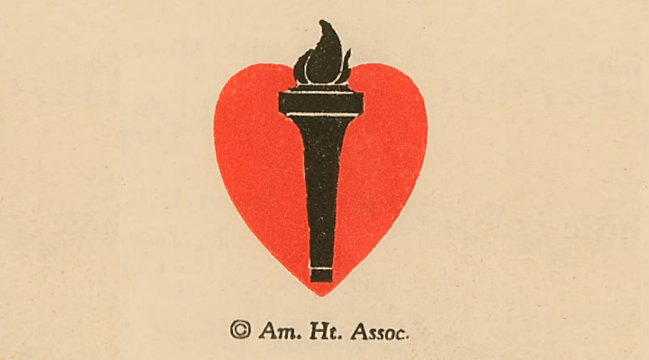AHA Celebrates a Century by Looking Back, and Forward
The AHA was founded by physicians committed to the outlandish notion that a CVD diagnosis was not a death sentence.

Photo Credit: AHA archives
Today marks 100 years since the founding of the American Heart Association (AHA) as a scientific society focused on the treatment and prevention of heart disease.
In the early 1920s, heart disease had for the first time become the leading cause of death in the United States, and the diagnosis was widely believed to be a fait accompli.
As the story goes, a small group of five or six physicians, led by Paul Dudley White, MD, of Boston, disagreed. Together they went through the hoops of incorporating the AHA as a scientific society, and on June 10, 1924, they elected the organization’s first board of directors and officers at a meeting at the Drake Hotel in Chicago.
The first AHA Scientific Sessions took place 1 year later, at the Haddon Hall Hotel, in Atlantic City, NJ. “Some 200 physicians and members of the general public attended the 10 presentations as the group attempted to define—for the first time—the nature and scope of heart disease,” the AHA’s “100 years of Impact” recounts. The website provides a timeline of some of the major milestones of the past ten decades.
White, who had previously helped found the Boston Society for the Prevention and Relief of Heart Disease, became the president of the AHA more than a decade and a half later, in 1941. He served as the chief consultant to the National Heart Institute from 1948 until 1955, when he was appointed to be President Dwight D. Eisenhower's cardiologist after his acute MI on a Denver golf course in September 1955. Eisenhower first attributed his symptoms to indigestion from eating a hamburger with Bermuda onions. Under White’s care, Eisenhower recovered and went on to campaign for and serve a second term.
Revisiting the Drake Hotel
One hundred years later, AHA leadership, past presidents, and CEOs, prominent donors, and key volunteers returned today to the Drake Hotel for a luncheon, to be followed by a gala tonight hosted by heart disease survivor, the lawyer, and television personality Star Jones.
Speaking with TCTMD from Chicago, Mariell Jessup, MD, AHA’s chief science and medical officer, said that while White and the other male founders, all physicians, have made the history books, another name, Mary Wadley, a social worker who founded the social service unit at New York City’s historic Bellevue Hospital, also deserves a mention.
“I think what is really remarkable of this story is that it was a social worker, a woman, who said to them: listen, there are all these people that have had heart attacks and you need to think about the fact that, if they don't die, they don't work anymore, and that's the big problem,” Jessup said. “So they formed the American Heart Association to really try to understand the pathophysiology of heart attacks. They thought if we can understand why this happens, then maybe we can start to understand how to prevent it. They envisioned prevention, but at the time they didn’t know anything at all as to why people had heart attacks and what could be done to prevent them.”
From Physicians to the Public
In the mid-1940s, following World War II, the AHA “reorganized into a public health organization. It began raising funds, then spending that money on research, awareness campaigns, and more,” an AHA press release notes.
The AHA Scientific Sessions have been held continually since 1925, with the exception of during World War II, pivoting to an online meeting during the height of the COVID-19 pandemic. Over the past century, the death rate from cardiovascular disease has been cut by half, more than $5.7 billion has been funneled into cardiovascular research, and the organization itself boasts 32 million volunteers, supporters, and donors.
Looking back at what passed for physician advice and scientific understanding of the heart a hundred years ago, Jessup said that a huge challenge and goal for the AHA going forward will be winning and retaining public trust: “I think we lose track sometimes of saying, ‘This is what we know right now, but it may change.’”
Shelley Wood was the Editor-in-Chief of TCTMD and the Editorial Director at the Cardiovascular Research Foundation (CRF) from October 2015…
Read Full Bio

Comments